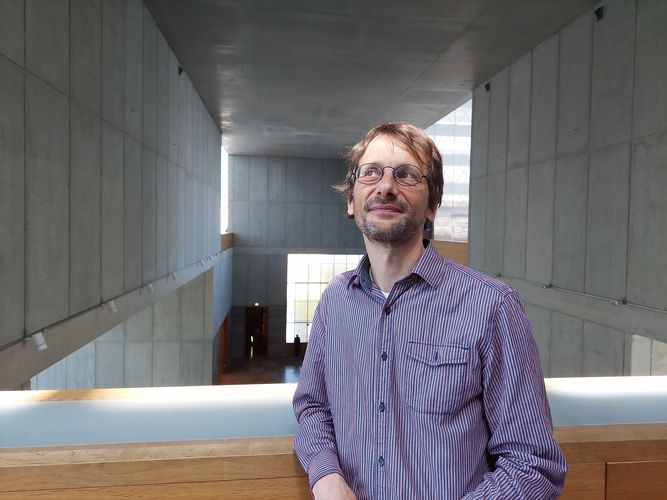Patrick Kupper, we are happy to have you in Leipzig! Perhaps you could start by telling us what you are working on in your research? What were your last major projects?
My field of research is the economic, social and environmental history of modern Europe. I have recently published an introduction to Environmental History (Umweltgeschichte, utb 2021) and co-edited with Anna-Katharina Wöbse a handbook on the European history of environmental protection (Greening Europe, De Gruyter 2022). I have also just finished a larger German-Austrian-Swiss funded research project “Issues with Europe” on the European Alpine transit policy.
What will you be working on during your research stay in Leipzig? Who are you collaborating with here?
During my stay in Leipzig I am developing a new research project on European energy history focusing on the long-term development and changes in the energy systems within Europe and beyond. A main research topic will be be how energy infrastructures increasingly penetrated regional, national, imperial and continental borders, establishing lines of power, in the word´s double sense, and mitigating some dependencies while creating new ones in both space and time. Using transnational and global approaches I like to understand European energy history since 1800 as a nonlinear, but irreversible and unsustainable societal process of temporalization and spatialization. First thoughts on this project I will present here in Leizpzig on May 23 at the “Kolloquium Geschichte des 19. bis 21. Jahrhunderts“. There or on other occasions, I would be most happy to engage in conversation with colleagues from the Research Centre.
(One focus of your research is on transnational perspectives on environmental, climate and energy history.) What is the role of the humanities - and in particular history - in the oftentimes natural science-driven debates on the global reorientation of the human-environment relationship? Do you see a trend towards more interdisciplinary research approaches in this field?
Environmental, climate and energy issues are indeed often framed as primarily scientific, technical and economic questions. These issues are, however, tightly linked to questions of economic power and political order, social justice and ecological sustainability. I am convinced that at the end of the day we are not talking only about replacing technologies or making energy use more efficient but about transforming our societies. Studying social change is again the core competence of the humanities and in particular history. Historical research is able to put our present condition into temporal perspective, to understand it as the result of past decisions and long-term developments. It can show how societies dealt with energy, environment and climate in the past and how those societies transformed themselves and their environments within the framework of both their social and ecological conditions. In researching these issues, there has been since long a fruitful interdisciplinary cooperation. What I have noticed more recently, is a tendency towards greater inclusion of the results of this interdisciplinary research in mainstream disciplinary discourses. Environmental history, for example, has lately been moving from the margins to the centre of historical scholarship.
